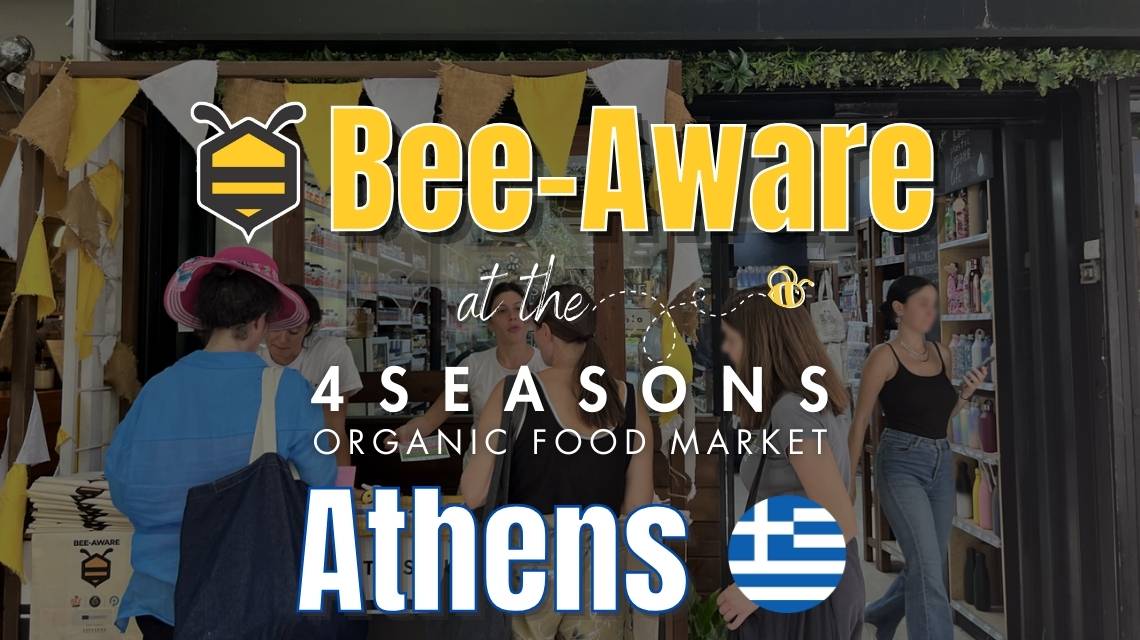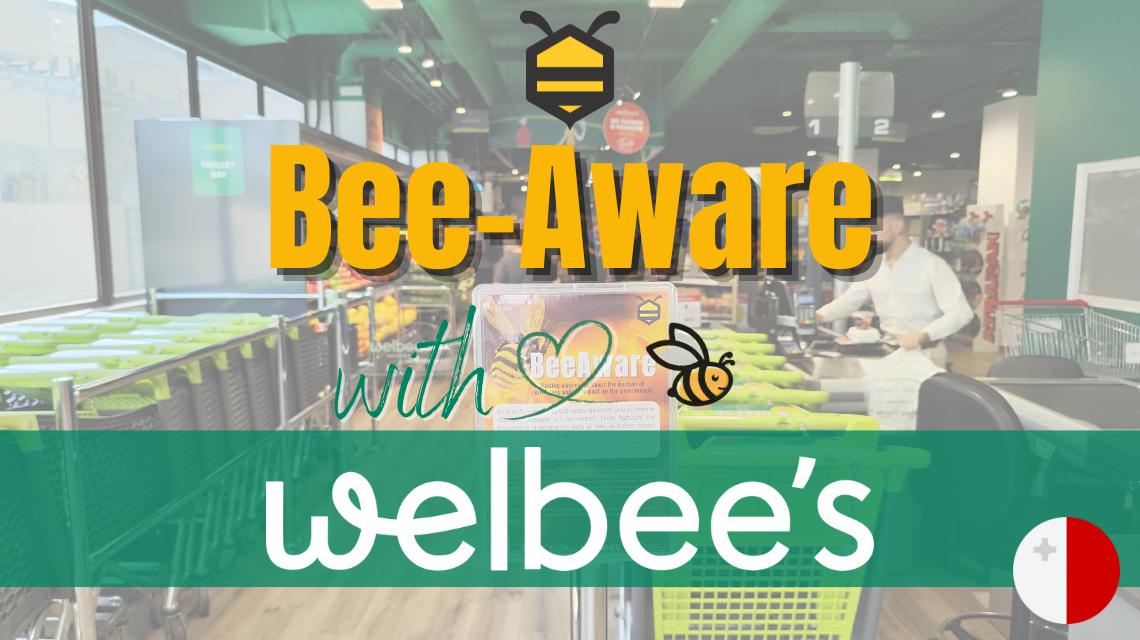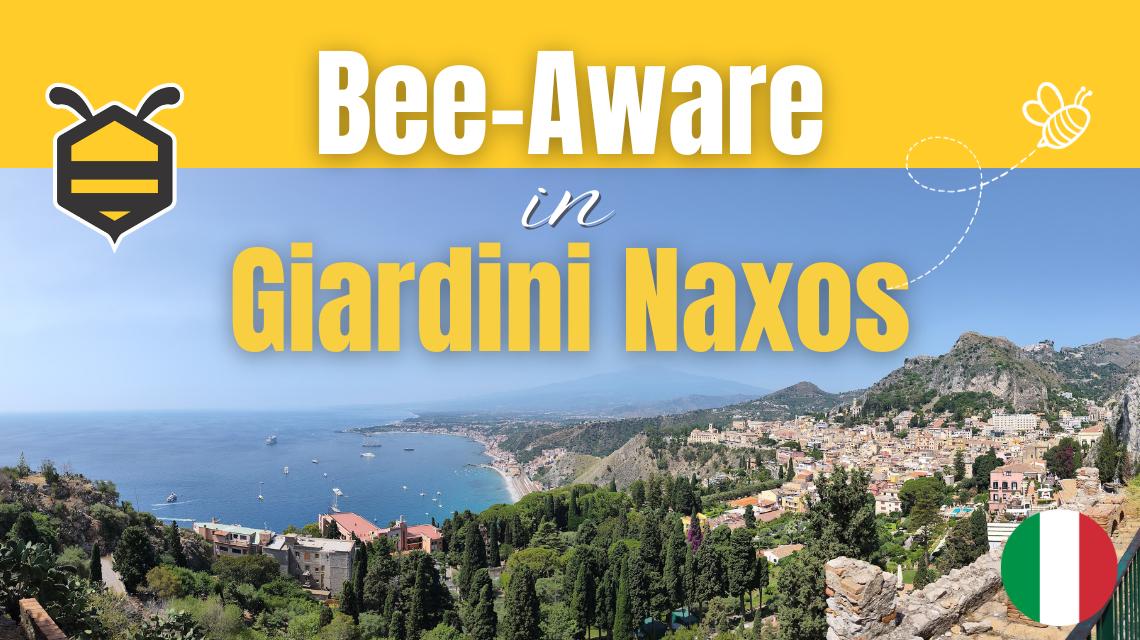No Bees No Food?!
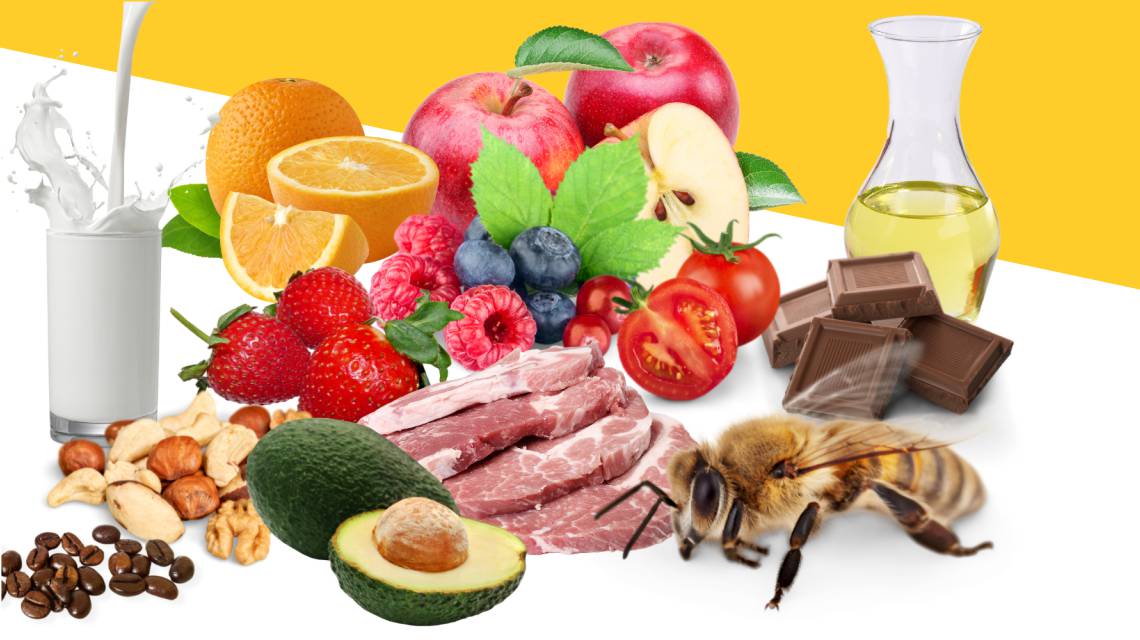
Pollinators, such as bees, butterflies, birds, and bats, play a crucial role in our food system by facilitating the reproduction of various plants. From fruits to nuts and vegetables to coffee, they ensure the production of diverse and nutritious food items. However, in recent years, there has been a worrying decline in pollinator populations worldwide. This trend poses a significant threat to our food supply and agricultural industries.
75%
75%
33%
Click on the food items list below to explore the impact of pollinator decline on these main food categories:
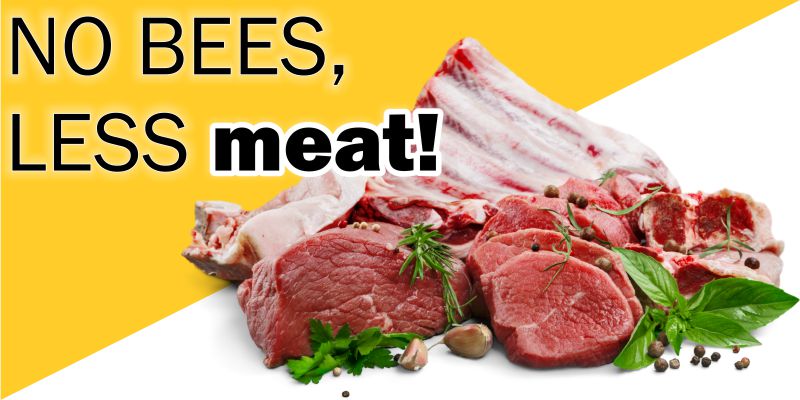 The decline or extinction of pollinators would severely affect meat production. Pollinators play a crucial role in pollinating plants used as livestock feed. With their decline, the availability and diversity of animal feed would decrease, leading to reduced livestock populations and compromised meat production. Moreover, the disruption of ecosystems due to pollinator loss would hamper the natural balance required for healthy livestock rearing, resulting in lower meat yields and potential food supply challenges.
The decline or extinction of pollinators would severely affect meat production. Pollinators play a crucial role in pollinating plants used as livestock feed. With their decline, the availability and diversity of animal feed would decrease, leading to reduced livestock populations and compromised meat production. Moreover, the disruption of ecosystems due to pollinator loss would hamper the natural balance required for healthy livestock rearing, resulting in lower meat yields and potential food supply challenges.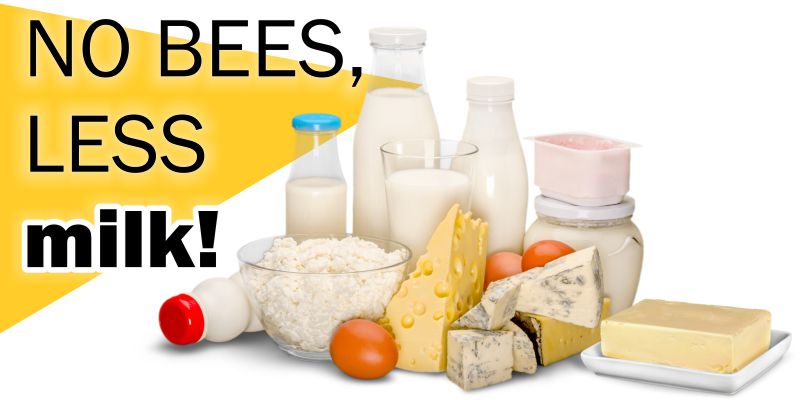 The decline or extinction of pollinators would have a profound impact on dairy production. Pollinators are essential for the growth of forage crops like alfalfa and clover, which are vital feed sources for dairy cows. Reduced pollination would lead to decreased forage availability, hindering dairy cow nutrition and milk production. As a result, the decline of pollinators would translate to lower dairy yields and potential milk scarcity, impacting the dairy industry and consumers alike.
The decline or extinction of pollinators would have a profound impact on dairy production. Pollinators are essential for the growth of forage crops like alfalfa and clover, which are vital feed sources for dairy cows. Reduced pollination would lead to decreased forage availability, hindering dairy cow nutrition and milk production. As a result, the decline of pollinators would translate to lower dairy yields and potential milk scarcity, impacting the dairy industry and consumers alike.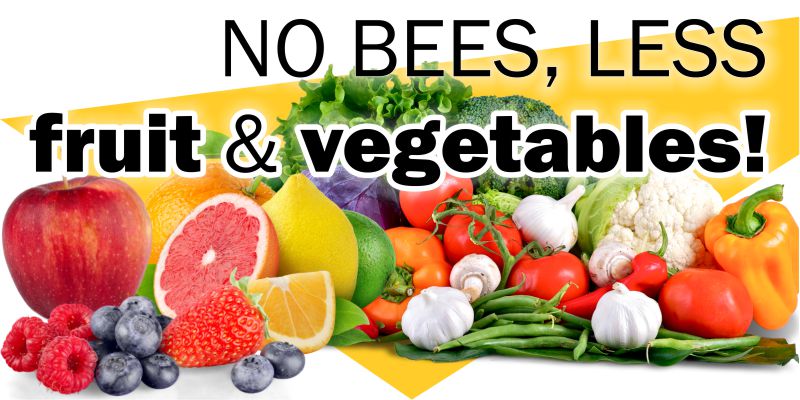 The extreme decline of pollinators would have a disastrous impact on fruit and vegetable production. Pollinators, such as bees, butterflies, and birds, are essential for fertilizing many fruit and vegetable plants. Without them, the yields and quality of these crops would drastically decrease, leading to food shortages and higher prices. Moreover, the loss of pollinators would disrupt ecosystems and biodiversity, further challenging sustainable agriculture and global food security.
The extreme decline of pollinators would have a disastrous impact on fruit and vegetable production. Pollinators, such as bees, butterflies, and birds, are essential for fertilizing many fruit and vegetable plants. Without them, the yields and quality of these crops would drastically decrease, leading to food shortages and higher prices. Moreover, the loss of pollinators would disrupt ecosystems and biodiversity, further challenging sustainable agriculture and global food security.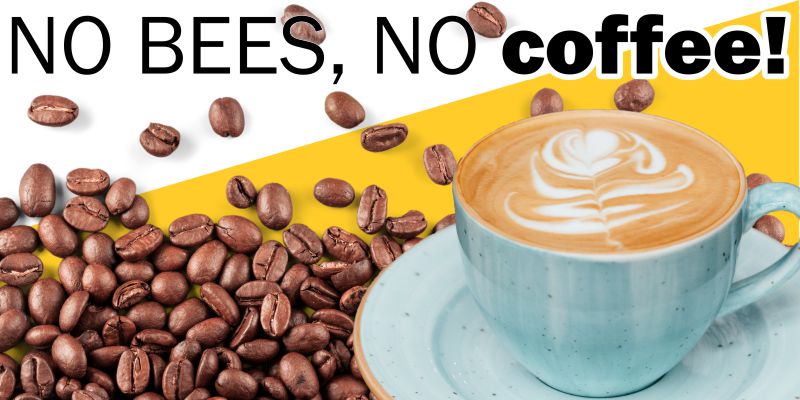 Pollinators, especially bees, significantly contribute to coffee plant pollination, ensuring coffee bean development. With their decline, coffee production would suffer, leading to decreased yields and higher prices. The loss of pollinators could also weaken coffee plants, making them more susceptible to diseases and pests, further compromising coffee quality and supply. Ultimately, pollinator extinction would threaten the global coffee industry, affecting millions of farmers and coffee enthusiasts worldwide.
Pollinators, especially bees, significantly contribute to coffee plant pollination, ensuring coffee bean development. With their decline, coffee production would suffer, leading to decreased yields and higher prices. The loss of pollinators could also weaken coffee plants, making them more susceptible to diseases and pests, further compromising coffee quality and supply. Ultimately, pollinator extinction would threaten the global coffee industry, affecting millions of farmers and coffee enthusiasts worldwide.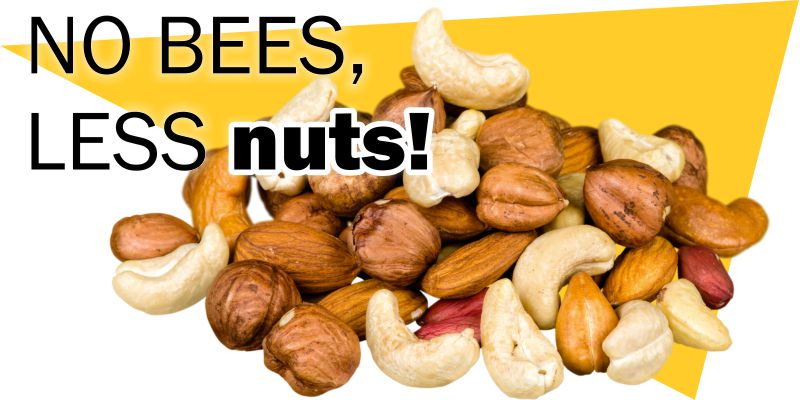 Pollinators like bees are indispensable for nut tree pollination, ensuring nut formation and growth. A decline in pollinators would lead to reduced nut production, limiting the availability of nuts for consumption and affecting industries reliant on nuts. Additionally, the loss of pollinators could render nut trees weak and vulnerable to diseases and pests, jeopardizing nut crop health and overall yields, impacting both producers and consumers of these nutritious food items.
This means that they do not rely on insects for pollination. However, even wind-pollinated nuts can benefit from the presence of insects in the environment. Insects can help to disperse pollen, which can increase the yield of nuts.
Pollinators like bees are indispensable for nut tree pollination, ensuring nut formation and growth. A decline in pollinators would lead to reduced nut production, limiting the availability of nuts for consumption and affecting industries reliant on nuts. Additionally, the loss of pollinators could render nut trees weak and vulnerable to diseases and pests, jeopardizing nut crop health and overall yields, impacting both producers and consumers of these nutritious food items.
This means that they do not rely on insects for pollination. However, even wind-pollinated nuts can benefit from the presence of insects in the environment. Insects can help to disperse pollen, which can increase the yield of nuts.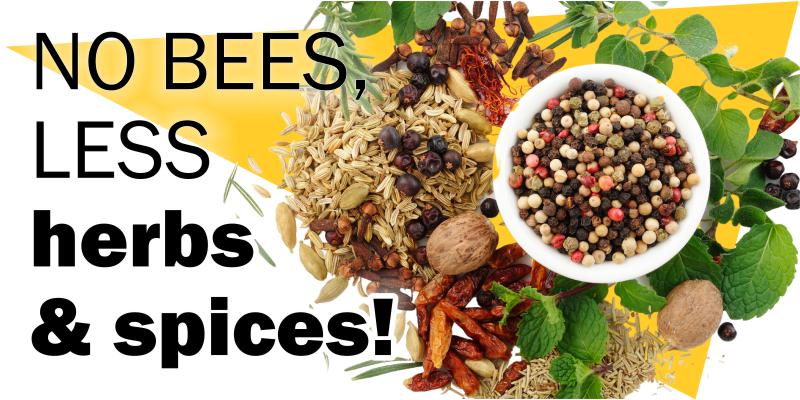 Pollinators also contribute to the growth and reproduction of various spices and herbs, such as rosemary, oregano, sage, basil, mint, nutmeg, vanilla and cinamon. A decline in pollinator populations could lead to reduced spice and herb production, impacting the availability of these flavorful ingredients in the food industry. Processed products like spice blends and dried herbs might also face shortages and higher prices.
Pollinators also contribute to the growth and reproduction of various spices and herbs, such as rosemary, oregano, sage, basil, mint, nutmeg, vanilla and cinamon. A decline in pollinator populations could lead to reduced spice and herb production, impacting the availability of these flavorful ingredients in the food industry. Processed products like spice blends and dried herbs might also face shortages and higher prices.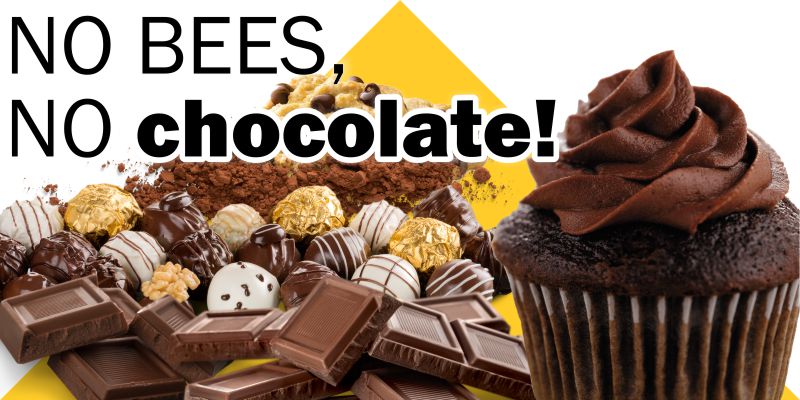 Pollinators, particularly midges and bees, play a critical role in pollinating cocoa trees, the source of chocolate. A decline in these pollinators would reduce cocoa pod formation, decreasing cocoa bean supply and escalating chocolate prices. The loss of pollinators might also lead to increased vulnerability of cocoa trees to diseases and environmental stress, jeopardizing the overall chocolate production and availability, bringing concerns to chocolate lovers worldwide.
Pollinators, particularly midges and bees, play a critical role in pollinating cocoa trees, the source of chocolate. A decline in these pollinators would reduce cocoa pod formation, decreasing cocoa bean supply and escalating chocolate prices. The loss of pollinators might also lead to increased vulnerability of cocoa trees to diseases and environmental stress, jeopardizing the overall chocolate production and availability, bringing concerns to chocolate lovers worldwide.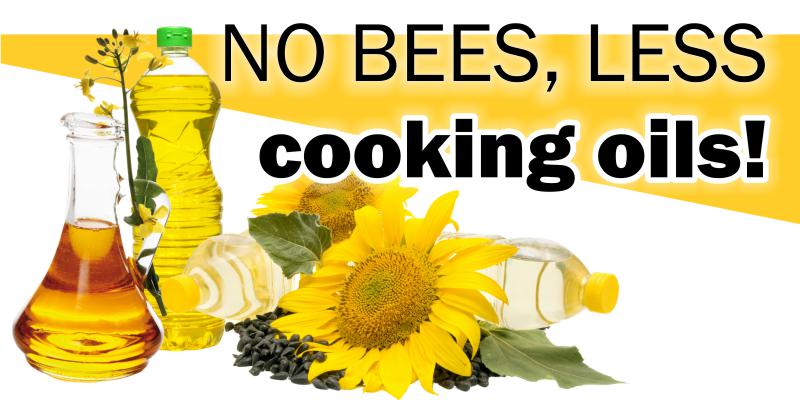 Cooking oils are derived from various plant sources, and the dependence on pollinators can vary among these plants. Pollinators, such as bees, butterflies, birds, and other insects, play a crucial role in the pollination process, which is essential for the production of fruits and seeds in many plants. Here are some examples of cooking oils that are dependent on pollinators:
Cooking oils are derived from various plant sources, and the dependence on pollinators can vary among these plants. Pollinators, such as bees, butterflies, birds, and other insects, play a crucial role in the pollination process, which is essential for the production of fruits and seeds in many plants. Here are some examples of cooking oils that are dependent on pollinators:
- Sunflower Oil: Sunflower oil is extracted from sunflower seeds (Helianthus annuus). Sunflowers are dependent on pollinators, especially bees, for their seeds to form.
- Canola (Rapeseed) Oil: Canola oil is obtained from the seeds of the canola plant (Brassica napus). Canola plants produce flowers that require pollination for seed development.
- Soybean Oil: While soybeans (Glycine max) are not directly used as cooking oil, they are processed to produce soybean oil. Soybeans are self-pollinating, but they can benefit from pollinators, which can enhance seed set and yield.
- Safflower Oil: Safflower oil is derived from safflower seeds (Carthamus tinctorius), which are dependent on pollinators for seed production.
- Corn (Maize) Oil: Corn oil is obtained from corn (Zea mays) kernels. Corn is wind-pollinated, but it can also benefit from pollinators, especially for increased kernel set.
- Cottonseed Oil: While cottonseed oil is not used as extensively for cooking, it is derived from the seeds of the cotton plant (Gossypium spp.), which requires pollination to produce these seeds.
Not just food…
The effect of the decline in pollinators goes beyond food and expands to other essential and non-essential daily products. Here are a few examples:
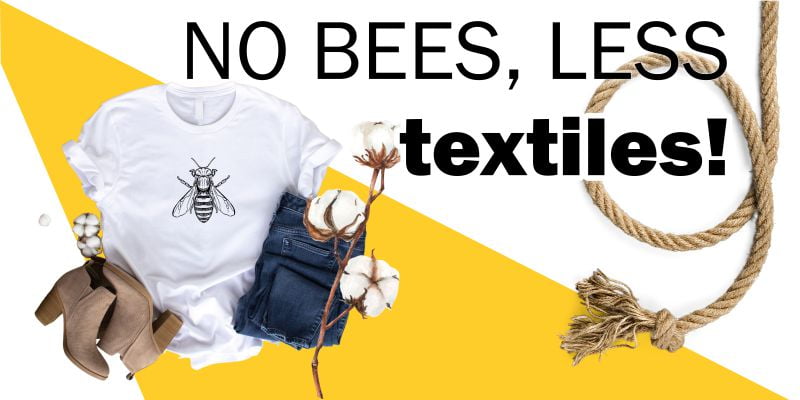 The demise of pollinators would significantly impact the textile industry, particularly in terms of cotton production. As bees and other pollinators play a vital role in the fertilization of cotton plants, their decline would result in reduced cotton yields and lower-quality fibers. This scarcity of cotton resources would drive up prices, leading to increased production costs for textile manufacturers. Moreover, alternative natural fibers like flax and hemp, also reliant on pollination, would face similar challenges. The textile industry would confront supply chain disruptions, heightened competition for limited resources, and potential shifts toward synthetic alternatives. Safeguarding pollinator populations becomes crucial to ensure the sustainability and stability of the textile sector.
The demise of pollinators would significantly impact the textile industry, particularly in terms of cotton production. As bees and other pollinators play a vital role in the fertilization of cotton plants, their decline would result in reduced cotton yields and lower-quality fibers. This scarcity of cotton resources would drive up prices, leading to increased production costs for textile manufacturers. Moreover, alternative natural fibers like flax and hemp, also reliant on pollination, would face similar challenges. The textile industry would confront supply chain disruptions, heightened competition for limited resources, and potential shifts toward synthetic alternatives. Safeguarding pollinator populations becomes crucial to ensure the sustainability and stability of the textile sector.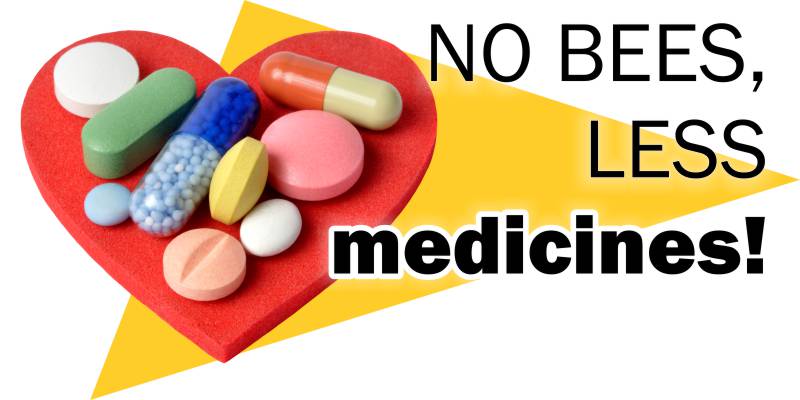 Pollinators play a vital role in the reproduction of many medicinal plants, which provide essential ingredients for various pharmaceutical drugs. A decline in pollinators could hinder the reproduction and propagation of these plants, potentially leading to shortages of medicinal resources and negatively impacting healthcare and research. Medicines affected would include:
Pollinators play a vital role in the reproduction of many medicinal plants, which provide essential ingredients for various pharmaceutical drugs. A decline in pollinators could hinder the reproduction and propagation of these plants, potentially leading to shortages of medicinal resources and negatively impacting healthcare and research. Medicines affected would include:
- Immune system support and cold/flu symptoms relief
- Heart conditions like congestive heart failure and atrial fibrillation
- Pain relief and anti-inflammatory treatment
- Insomnia and anxiety management
- Mild to moderate depression treatment
- Cognitive and immune system support
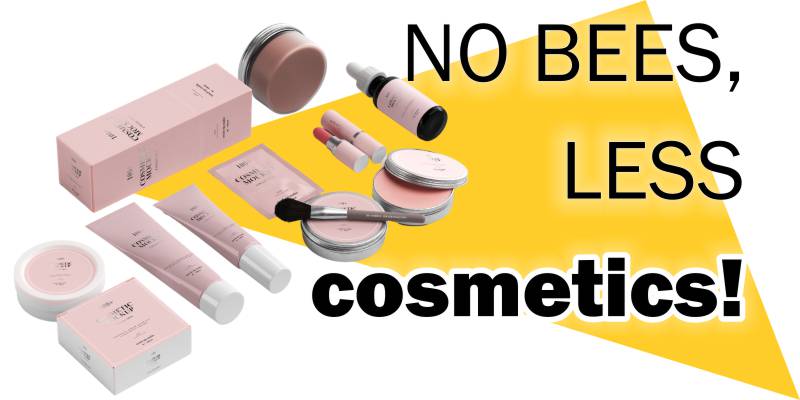 Pollinators profoundly impact the cosmetics and beauty industry by supporting the growth of plants used in beauty products. They enable the production of essential oils, floral extracts, and natural dyes, adding fragrance, therapeutic properties, and color to cosmetics. Beeswax and honey, essential ingredients in skincare products, are also reliant on pollinators. The decline of pollinators could affect ingredient availability, sustainability, and biodiversity in the industry. Protecting pollinators is essential for maintaining the integrity and viability of the cosmetics and beauty sector.
Pollinators profoundly impact the cosmetics and beauty industry by supporting the growth of plants used in beauty products. They enable the production of essential oils, floral extracts, and natural dyes, adding fragrance, therapeutic properties, and color to cosmetics. Beeswax and honey, essential ingredients in skincare products, are also reliant on pollinators. The decline of pollinators could affect ingredient availability, sustainability, and biodiversity in the industry. Protecting pollinators is essential for maintaining the integrity and viability of the cosmetics and beauty sector.Did you know?
The Food and Agriculture Organization of the United Nations (FAO) estimates that of the 100 crop species that provide 90% of food worldwide, 71 are pollinated by bees.
In the European Union, a significant proportion of crops also depend on insect pollination, with bees playing a crucial role. Aside from the evident importance of pollination in preserving biodiversity, it has been estimated that the economic value of global pollination services amounts to hundreds of billions of euros each year.
Read more about pollinators on the European Food Safety Authority (EFSA) website.
What can I do?
We can all help the fight against pollinator decline by creating pollinator-friendly gardens with native plants, avoiding the use of harmful pesticides, and supporting local beekeepers. Educating others about the importance of pollinators and advocating for policies that protect their habitats are also impactful actions to ensure the survival of these essential creatures
